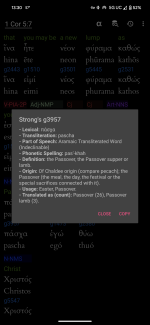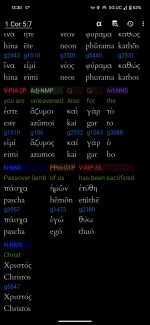Paul certainly believed we are partakers of the bread (the one body of Christ) and the cup (the new covenant).
Luke 22:19-20 ESV
(19) And he took bread, and when he had given thanks, he broke it and gave it to them, saying, “This is my body, which is given for you. Do this in remembrance of me.”
(20) And likewise the cup after they had eaten, saying, “This cup that is poured out for you is the new covenant in my blood.
1 Corinthians 11:23-26 ESV
(23) For I received from the Lord what I also delivered to you, that the Lord Jesus on the night when he was betrayed took bread,
(24) and when he had given thanks, he broke it, and said, “This is my body, which is for you. Do this in remembrance of me.”
(25) In the same way also he took the cup, after supper, saying, “This cup is the new covenant in my blood. Do this, as often as you drink it, in remembrance of me.”
(26) For as often as you eat this bread and drink the cup, you proclaim the Lord's death until he comes.
1 Corinthians 10:16-17 ESV
(16) The cup of blessing that we bless, is it not a participation in the blood of Christ?
The bread that we break, is it not a participation in the body of Christ?
(17) Because there is one bread, we who are many are one body, for we all partake of the one bread.
Luke 22:19-20 ESV
(19) And he took bread, and when he had given thanks, he broke it and gave it to them, saying, “This is my body, which is given for you. Do this in remembrance of me.”
(20) And likewise the cup after they had eaten, saying, “This cup that is poured out for you is the new covenant in my blood.
1 Corinthians 11:23-26 ESV
(23) For I received from the Lord what I also delivered to you, that the Lord Jesus on the night when he was betrayed took bread,
(24) and when he had given thanks, he broke it, and said, “This is my body, which is for you. Do this in remembrance of me.”
(25) In the same way also he took the cup, after supper, saying, “This cup is the new covenant in my blood. Do this, as often as you drink it, in remembrance of me.”
(26) For as often as you eat this bread and drink the cup, you proclaim the Lord's death until he comes.
1 Corinthians 10:16-17 ESV
(16) The cup of blessing that we bless, is it not a participation in the blood of Christ?
The bread that we break, is it not a participation in the body of Christ?
(17) Because there is one bread, we who are many are one body, for we all partake of the one bread.



